 Computer Tutorials
Computer Tutorials
 Computer Knowledge
Computer Knowledge
 Lenovo computer black screen after selecting USB drive to start
Lenovo computer black screen after selecting USB drive to start
Lenovo computer black screen after selecting USB drive to start
Recently, some netizens encountered a situation where the system started normally after turning on the Lenovo Savior laptop, but the screen went black.
This situation is caused by refresh rate overclocking. In the past era of CRT monitors, users could adjust the refresh rate of the screen because its light emitting principle was different from that of LCD monitors. However, with the popularity of LCD/LED displays, the refresh rate of the screen has been fixed, and this problem no longer occurs. Therefore, this issue has become a thing of the past.
In the past two years, with the advancement of technology and the increasing requirements for hardware performance of large-scale games, high-refresh LCD screens have appeared. The refresh rate of this kind of screen can reach higher values, usually 90Hz, 120Hz or even higher. This increase in refresh rate is to solve the problem that occurs when the graphics card outputs a high frame rate in the game and the display only has the traditional 60Hz. Taking a traditional 60Hz display as an example, if the frame rate output by the graphics card exceeds 60 frames per second, part of the game screen will be discarded as invalid frames within 1 second. The higher the frame rate, the more frames are dropped, which is equivalent to wasting the gaming power of the graphics card. And if the refresh rate of the display can match the number of frames output by the graphics card, the game screen will be smoother. Therefore, the emergence of high-refresh LCD screens can give full play to the performance of graphics cards and reduce game screens.
The problem of Lenovo gaming notebook refresh rate overclocking and black screen may be due to immature quality or high-refresh screen technology.
So how should we solve this problem?
After turning on the computer, press the power button without letting go, and then force the computer to shut down. Do this three times.
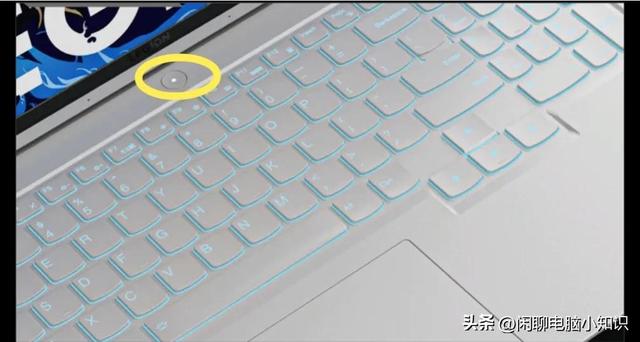
The computer will enter repair mode, select Troubleshoot.
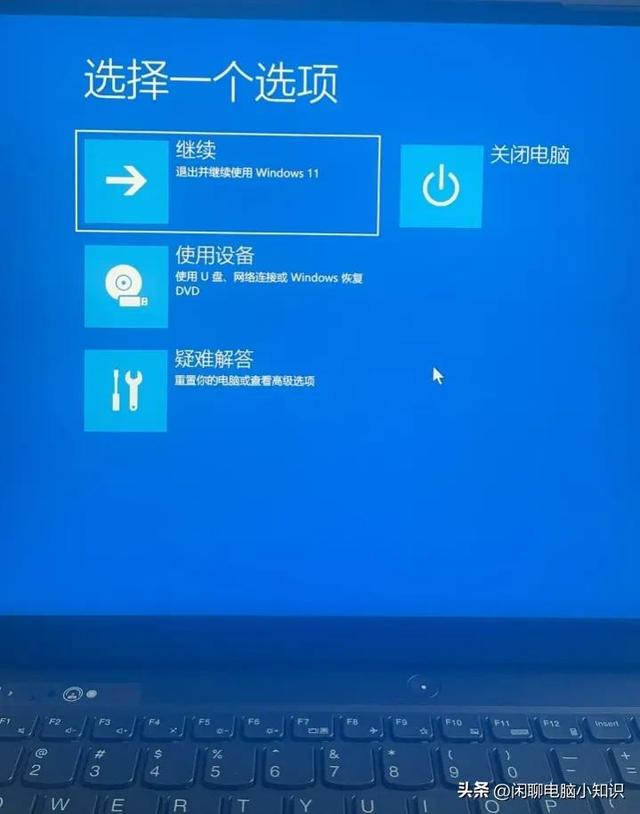
Click Advanced Options in Troubleshooter.
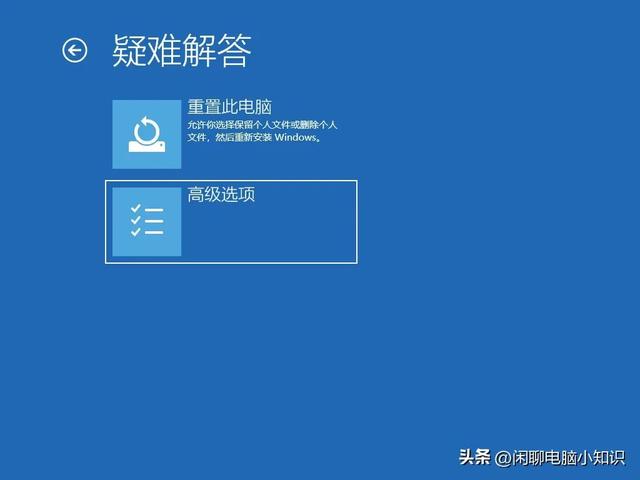
Click Startup Settings in the advanced options.
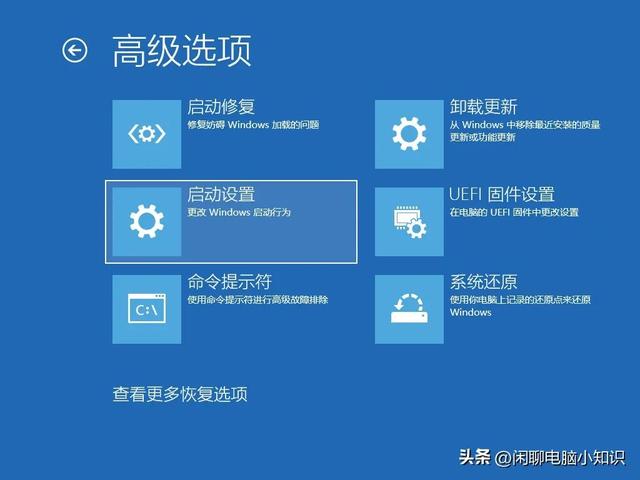
Click Restart in the lower right corner of the startup settings.
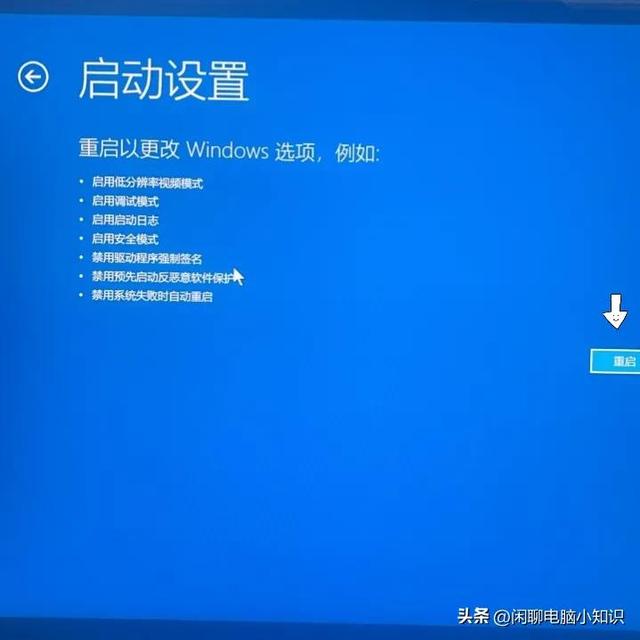
After restarting, select "3) Enable low-resolution video" in the startup options to enter the system.
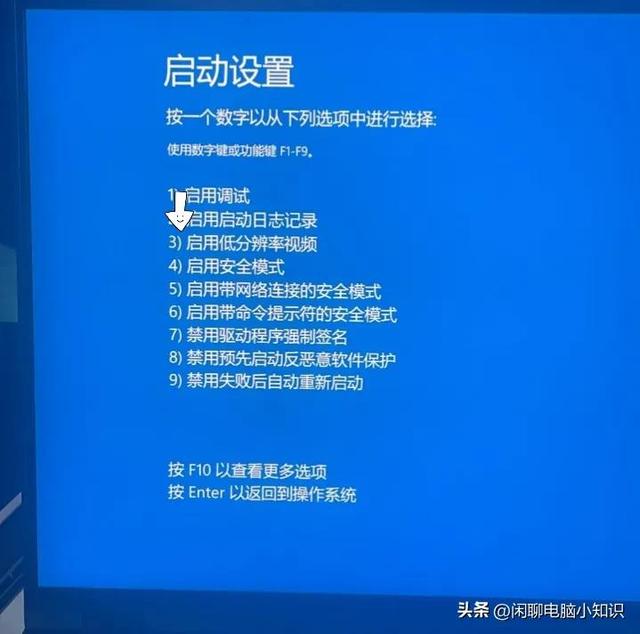
After entering the system, find Settings - Display - Advanced Display.
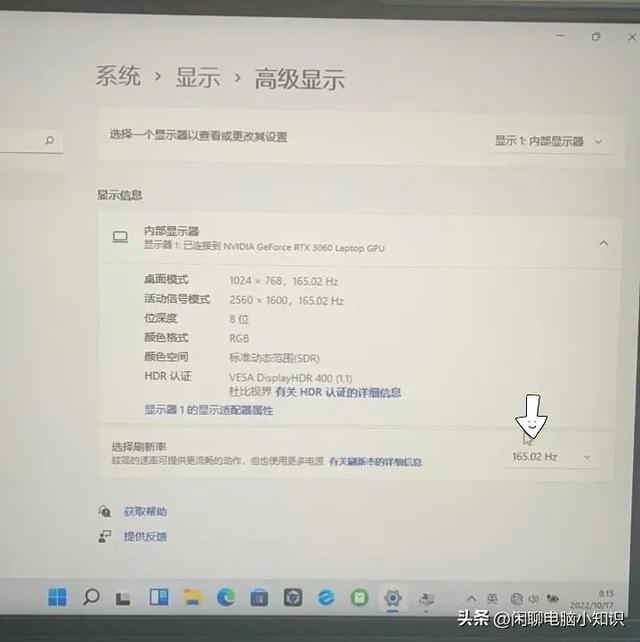
Just lower the refresh rate.
If you are not playing games, it is recommended to lower the refresh rate by one level, because the refresh rate of the screen is how many times the screen updates the display information per second. The higher the refresh rate, the smoother the game, and the higher the relative energy consumption, which will consume more power when using the battery.
High refresh rate screens have to update the displayed images more times every second, and their service life will also be relatively reduced.
The above is the detailed content of Lenovo computer black screen after selecting USB drive to start. For more information, please follow other related articles on the PHP Chinese website!

Hot AI Tools

Undresser.AI Undress
AI-powered app for creating realistic nude photos

AI Clothes Remover
Online AI tool for removing clothes from photos.

Undress AI Tool
Undress images for free

Clothoff.io
AI clothes remover

AI Hentai Generator
Generate AI Hentai for free.

Hot Article

Hot Tools

Notepad++7.3.1
Easy-to-use and free code editor

SublimeText3 Chinese version
Chinese version, very easy to use

Zend Studio 13.0.1
Powerful PHP integrated development environment

Dreamweaver CS6
Visual web development tools

SublimeText3 Mac version
God-level code editing software (SublimeText3)

Hot Topics
 Laptop has mouse arrows but black screen
Apr 10, 2024 pm 01:20 PM
Laptop has mouse arrows but black screen
Apr 10, 2024 pm 01:20 PM
After turning on the laptop, the screen goes black and there is nothing on the desktop. There is no icon, only a mouse arrow... Damage to the picture tube or line output circuit. Failure of the picture tube or line output circuit will also cause a black screen without raster when the monitor is powered on. It is also the main cause of a black screen after the notebook is turned on. Sometimes the inability to boot is caused by a short circuit in some components, such as external USB devices, keyboards, mice, or power adapters. Try unplugging these devices and booting with only the battery installed to see if you can enter the BIOS. some type of. A black screen may occur when the computer starts up because the motherboard, monitor and graphics card in the computer are damaged, or the computer configuration is too old. This phenomenon may also occur. Most of the reasons are caused by process errors.
 Huawei mobile phone USB sharing network to computer
May 08, 2024 am 08:25 AM
Huawei mobile phone USB sharing network to computer
May 08, 2024 am 08:25 AM
How to connect a Huawei phone to a computer via USB to access the Internet. First, we open the phone settings and search for "HDB". Then we click to open "Mobile Network Sharing" in More. Then we can click to open "USB Sharing Network" in the pop-up window. Summary First, connect the Huawei mobile phone to the computer through the data cable. Open "Settings" on your phone and enter the settings interface. Click "Personal Hotspot", select "USB tethering" and click the switch button at the back to turn it on. First click "Settings About Phone", then click "Version Number" 7 times in succession. You will be prompted to enter developer mode. Then return to the "Settings" list, "Developer Options" will appear, then click to enter "Developer Options", turn on the "USB Debugging" switch, and click
 How to turn off the monitor on a laptop
Mar 24, 2024 am 10:01 AM
How to turn off the monitor on a laptop
Mar 24, 2024 am 10:01 AM
How to turn off the laptop screen and enter the computer, select the start icon in the lower left corner. Find and click to enter the settings option. In the settings interface, select the first one and go to system options. Click to enter the power and sleep options, then turn on the sleep screen and set the time. Question 1: How to turn off the screen on a laptop? Right-click the power icon in the lower right corner of the screen, and then select "Power Options" to enter the power options setting window. (The settings window can also be opened through "Control Panel → Power Options"), and then click "Choose when to turn off the display." Which key on the computer is to pause the screen: The shortcut key to pause the computer screen is "Win+L". When pressed, the computer will pause the screen. How to turn off the screen of Lenovo notebook thinkpad 1. The shortcut key to turn off the computer screen is to press windows at the same time.
 Lenovo computer bios universal password
Apr 30, 2024 am 10:49 AM
Lenovo computer bios universal password
Apr 30, 2024 am 10:49 AM
How to set the bios password of Lenovo computer 1. First, we press f2 to enter the bios and switch to the security menu item. Then we use the up and down arrow keys to select the password option and press the Enter key to enter. Disabled means that the bios super administrator password is not currently set. If enabled, it means that the bios password has been set. 2. The first step is to enter the bios interface. After booting, press F12 immediately to enter the bios startup interface. In this computer information menu bar, you can see main hardware information such as computer model, BIOS version, CPU, memory, hard disk, optical drive, etc. Step 2: Press the right arrow key → on the keyboard to enter the hardware configuration settings. 3. Insert the USB flash drive into the computer, and then
 Laptop battery not charging when plugged in
Apr 03, 2024 am 08:34 AM
Laptop battery not charging when plugged in
Apr 03, 2024 am 08:34 AM
Why does the computer show that the power is connected but not charged? Poor contact and damaged battery. Batteries have a number of charges and a service life. If the battery exceeds the service life and number of charges, it will of course become disconnected and unable to charge. Sometimes the computer's charging port may become loose, preventing the battery port from being connected. The reason is as follows: Check whether the charging function is disabled. The notebook has a "disable charging" function in the battery options. Under this function, the adapter directly supplies power to the notebook without charging the battery. In this case, it cannot be charged. Circuit faults. Sometimes the circuit is unstable or the voltage is too high or too low, which will affect the charging of electronic equipment. In particular, some electronic equipment cannot be directly connected to the circuit socket, or must use a specific adapter. These
 Laptop cannot enter bios
Apr 12, 2024 am 09:10 AM
Laptop cannot enter bios
Apr 12, 2024 am 09:10 AM
Why can't the computer enter the bios? Your BIOS battery is out of power. Solution: Just replace the battery. Cause analysis: The user did not know the brand of his motherboard during installation and pressed the wrong start button. Memory check takes a long time when booting up. Reason: The setting parameters of the motherboard BIOS are wrong or the hardware is faulty. The symptoms include battery failure, configuration errors, poor memory or hard disk contact, etc. Setting method: (1) If you enter the BIOS due to misoperation, you can press the ESC key on the keyboard to exit. This is because the boot item is missing and can be set in the bios. Tools: Computer. If this interface is displayed after turning on the computer, it means that the boot item is missing. At this time, restart the computer. Restart the computer and press F1 (different computers may differ) to enter the setup interface.
 CAD laptop configuration
May 03, 2024 pm 09:13 PM
CAD laptop configuration
May 03, 2024 pm 09:13 PM
What configurations are required to install AutoCAD 2014 version software on a laptop? 1. It does not need to be very high. The general requirements are: 4G memory, good graphics card and processor. 2. The laptops required for CAD are as follows: Operating system: windows7 (64-bit is recommended). Memory: minimum 2GB (4GB and above recommended). Graphics card: Video memory 1G or above, bit width 256bit or above, video memory type DDR3 or above, it is recommended to use NVIDIA brand graphics card. 3. AutoCAD2014, configuration requirements: Operating system: Windows 8 Standard Edition, Enterprise Edition, Professional Edition, Windows 7 Enterprise Edition, Ultimate Edition, Professional Edition or Home Premium Edition or Windows XP Professional
 Does the newly assembled computer keyboard light not light up?
May 07, 2024 pm 04:40 PM
Does the newly assembled computer keyboard light not light up?
May 07, 2024 pm 04:40 PM
Does the newly assembled computer keyboard light not light up? The motherboard model should be UEFIbios. First find a keyboard with PS2 port, enter bios, turn off UEFI boot, and change to Legacy mode. If there is fast boot, turn off options like FastBoot, UEFI boot, turn on fast boot, and enter the system. USB interface detection may be turned off before, and USB devices can be used to assemble the computer after entering the system. The mouse and keyboard lights do not light up when the computer is turned on? If the keyboard light does not come on, there is a high possibility of memory failure, or it may be caused by static electricity on the motherboard or the motherboard is faulty. Use an eraser to wipe the gold finger of the memory graphics card, and remove and insert the memory several times. The problem remains. There are dual memory sticks and a single memory stick is used for testing. The problem persists. Re-plug the various cables inside and outside the chassis, and then unplug the connector on the motherboard.





